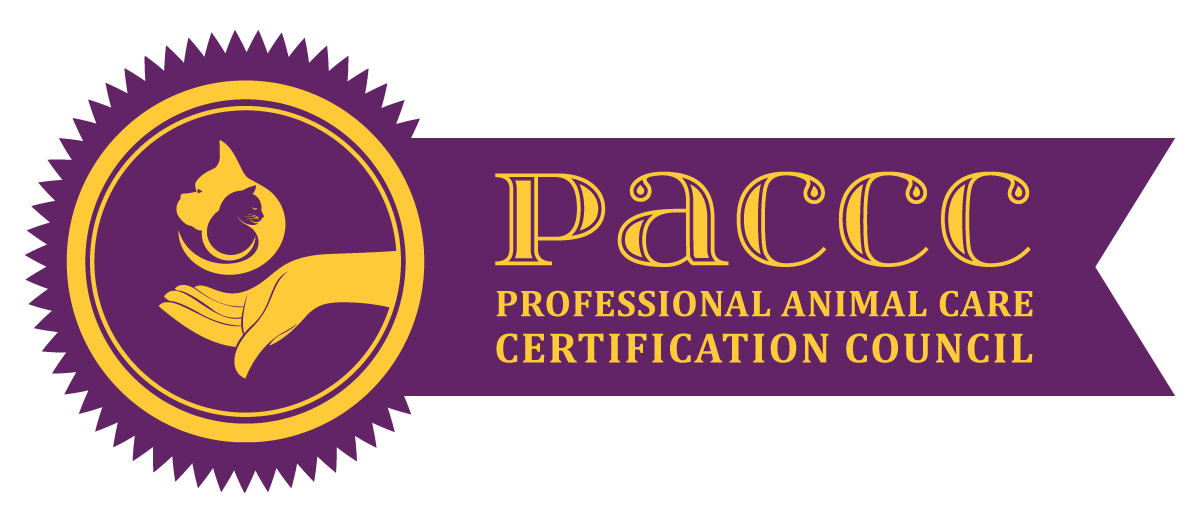12 CEU Knowing Dogs 101 - Certified Pet Care Professionals
PACCC CERTIFIED DIRECTORY
There are three levels of PACCC certification: Certified Professional Animal Care Provider (CPACP), Manager (CPACM), and Operator (CPACO). The exams are appropriate for the position level one holds in the industry. To initially qualify for the exams, the following individuals had to meet significant minimum education and work experience requirements, as well as provide letters of reference from veterinarians and other pet care industry professionals. They then had to successfully pass an in-depth exam, conducted in-person at an approved PACCC testing location. The first level of certification is CPACP, followed by CPACM which requires an increased level of education and experience, and then CPACO which requires even more. An advanced certification level does not require initial certification at another level. For example, becoming a CPACM does not require initial certification as a CPACP. The exams are appropriate for the position level the professional holds in the industry.
By becoming independently certified, these professionals are pet care pioneers and leaders in pet safety. To remain certified, a minimum amount of continuing education credits must be met.
If you are a Certified Professional but your contact information in our directory is incorrect, please let us know by clicking the button below.
Congratulations to these pet care professionals who have achieved PACCC certified status.
Looking for a PACCC certified pet care professional? You’ve come to the right place! Use the “Search” function if you know exactly who you’re looking for or the “Select Category” dropdown function to find a credentialed pro in your area.
12 CEU Knowing Dogs 101

Knowing Dogs 101
Presenters: Robin Bennett CPDT-KA and Susan Briggs CPACM
Work Email: [email protected]INTERNET
Biography
Knowing Dogs is an interactive staff training product based on content from Robin Bennett and Susan Briggs’ best-selling book, Off Leash Dog Play. This two-volume training resource is designed for pet care center management to train all staff members on safe dog interactions and group play.
Knowing Dogs 101: Dog Language
Body Language Basics
Human & Dog Greetings
Dog Emotional States
Dogs in Stress
Dog Aggression
Leadership
Human & Dog Social Interactions
Knowing Dogs provides you with:
Consistent technical dog knowledge and handling skills training for Pet Care Provider new hires
Timely self-study training for one new hire or a small group
Valuable time saving delivery using self-study narrated DVDs
Minimize staff injuries and accidents as providers learn safe handling and dog language basics
Healthier and happier dog guests as staff recognize early warnings of dog discomfort
Safer and more easily managed dog social play groups by trained leaders that understand play behaviors and use proactive management skills
Confirmation of learning comprehension with program assessment and module evaluations
Hands-on activités and shift tips that transfer skills learned to the job
Standardized training for your staff
Format: Online










